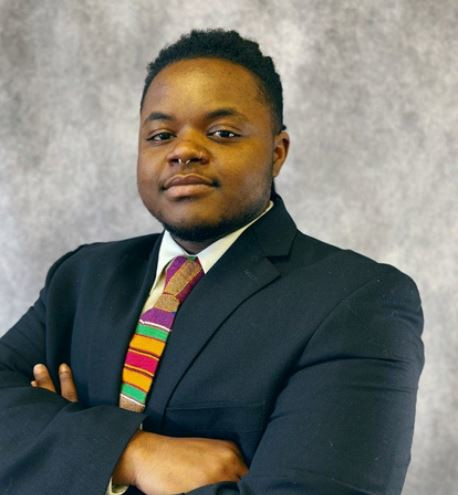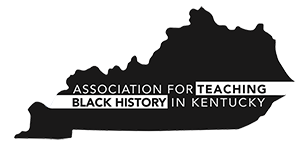Welcome to the latest edition of our newsletter, designed especially for the dedicated supporters and friends of the Association for Teaching Black History in Kentucky. We’re thrilled to have you with us as we continue our mission to educate, inspire, and honor the rich
history of Black Kentuckians.
Dr. Dwayne Mack and Sharyn Mitchell Provide Professional Development for ATBHK Working Groups
Historians Dr. Dwayne Mack and Sharyn Mitchell recently led a dynamic session focused on Kentucky’s Black history, with a particular emphasis on Madison County. The session provided educators with a wealth of content knowledge and practical strategies to integrate into their classrooms.
As part of the experience, educators explored the Berea College Special Collections and Archives, delving into primary source materials that will soon be featured in inquiry-based lessons on our website. This hands-on approach empowers educators to bring history to life, fostering deeper engagement and understanding among students.
Curious to learn more? Hear directly from ATBHK educators by watching this video!
Martin Luther King Day Community Breakfast

Join us for an inspiring celebration at the ATBHK Martin Luther King, Jr. Day Community Breakfast on Monday, January 20th at the historic Boone Tavern at Berea College! This year’s event will honor Dr. King’s legacy and feature voices dedicated to carrying forward his vision of justice and unity. Enjoy a complimentary breakfast and an uplifting program, highlighted by a powerful keynote address from Dr. Roger Cleveland.
The event is free and open to the public, but space is limited—reserve your spot today! Please use the QR code and register to be part of this special morning.

ATBHK Undergraduate Spotlight of the Month: Jay Scott

We are proud to recognize Jay Scott, a student at Northern Kentucky University and Mt. Sterling, KY native, as our undergraduate spotlight! Jay is a history major with a minor in Black studies and public history.
Jay says, “Teaching Black history is important because it not only tells the story of our community, but our Commonwealth.” He notes that much of Appalachia’s Black history feels “lost,” as many people are unaware of its existence. Jay understands the importance of local histories and their impact on statewide and national historical trends. Jay expresses that he “wants people like me to feel they belong in their communities and that their history is worth being told and studied.” We are excited to honor Jay’s commitment to sharing Black history with his community!
ATBHK Mini-Grant Application OPEN NOW!
The Association for Teaching Black History in Kentucky is excited to offer mini-grants to support our amazing K12 teachers! If you have a creative project or lesson idea focused on Kentucky’s rich Black history, we want to help make it happen.
What Can You Do with the Grant?
- Teaching Materials: Buy books, films, and other resources to bring Black history to life in your classroom.
- Field Trips: Take your students on educational trips to museums, historical sites, and cultural centers.
- Conferences and Workshops: Attend events that help you learn more about Black history and bring back new ideas to your students.
- Special Projects: Develop new lesson plans, invite guest speakers, or create unique projects that engage your students in learning about Black history.
Grant Amounts
You can apply for grants ranging from $250 to $500. And the best part? You can apply for renewal each year if funds are available!
Who Can Apply?
Any K-12 teacher in Kentucky with a passion for teaching Black history.
Application Process:
- Fill Out the Form: Provide some basic information about yourself and your school, then describe your project, how you’ll use the funds, and what you hope to achieve.
- Review and Decision: Our committee will review all applications and select the projects that best meet our mission.
Contact Information
Email: robinsons2@berea.edu
phone: 859-985-3942
Professional Reading
Culturally Responsive Teaching
Culturally responsive teaching, rooted in Gloria Ladson-Billings’ framework of culturally relevant pedagogy, emphasizes the importance of integrating students’ cultural identities and experiences into the learning process to foster engagement and achievement. Zaretta Hammond, in Culturally Responsive Teaching and the Brain, defines it as the ability to use students’ cultural knowledge to bridge new concepts while building meaningful relationships in a supportive learning environment. This approach involves affirming student identities, validating their experiences within a sociopolitical context, and employing culturally relevant strategies like storytelling and movement to enhance cognitive processing. By centering student voices and creating inclusive, learner-centered classrooms, culturally responsive teaching moves beyond tokenism to truly support student success.
ATBHK Wants to Visit Your School!









